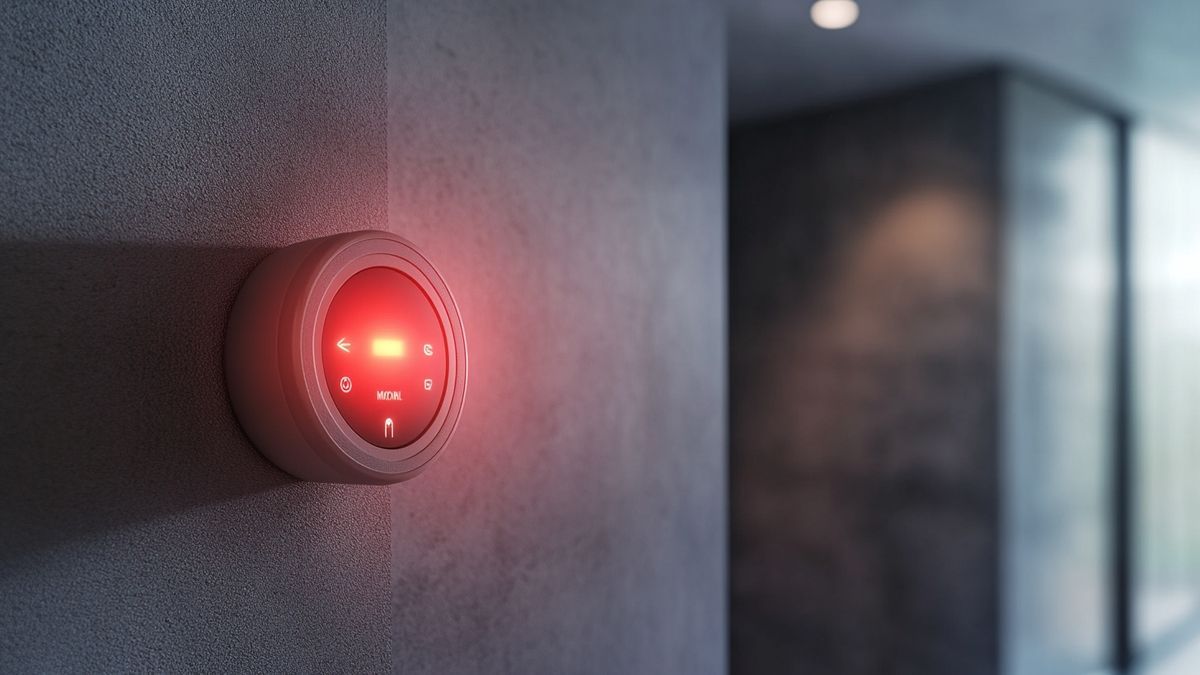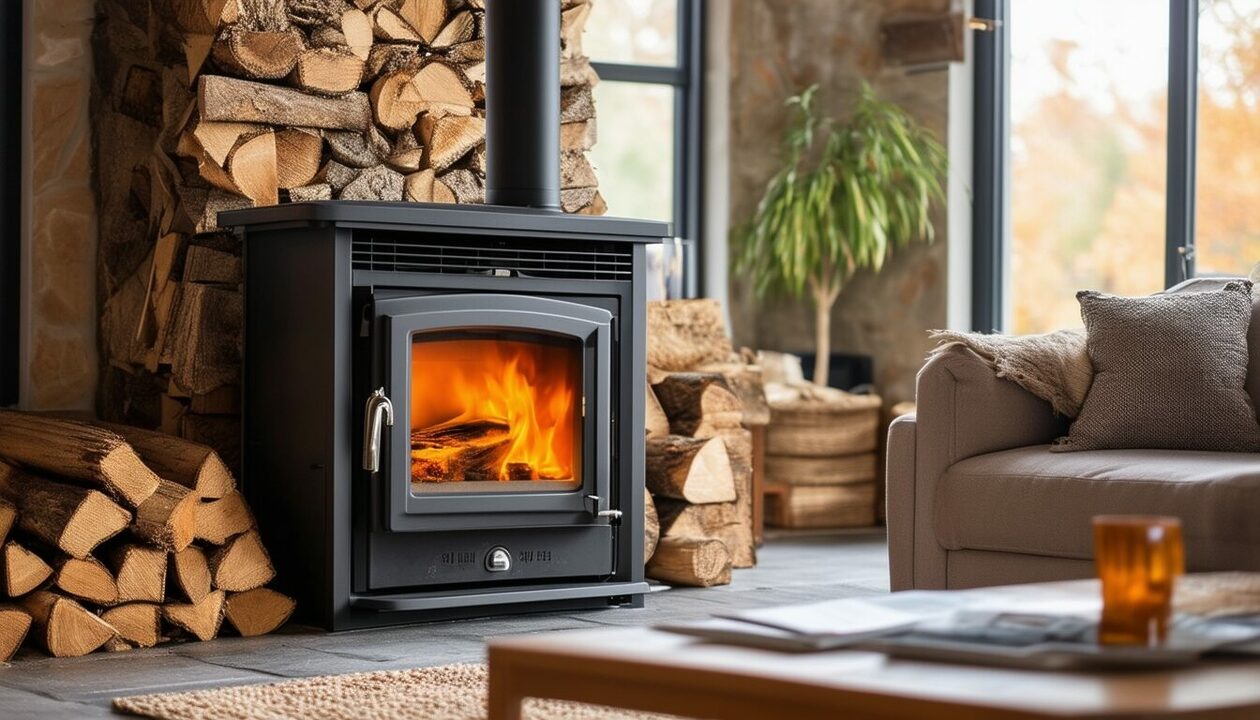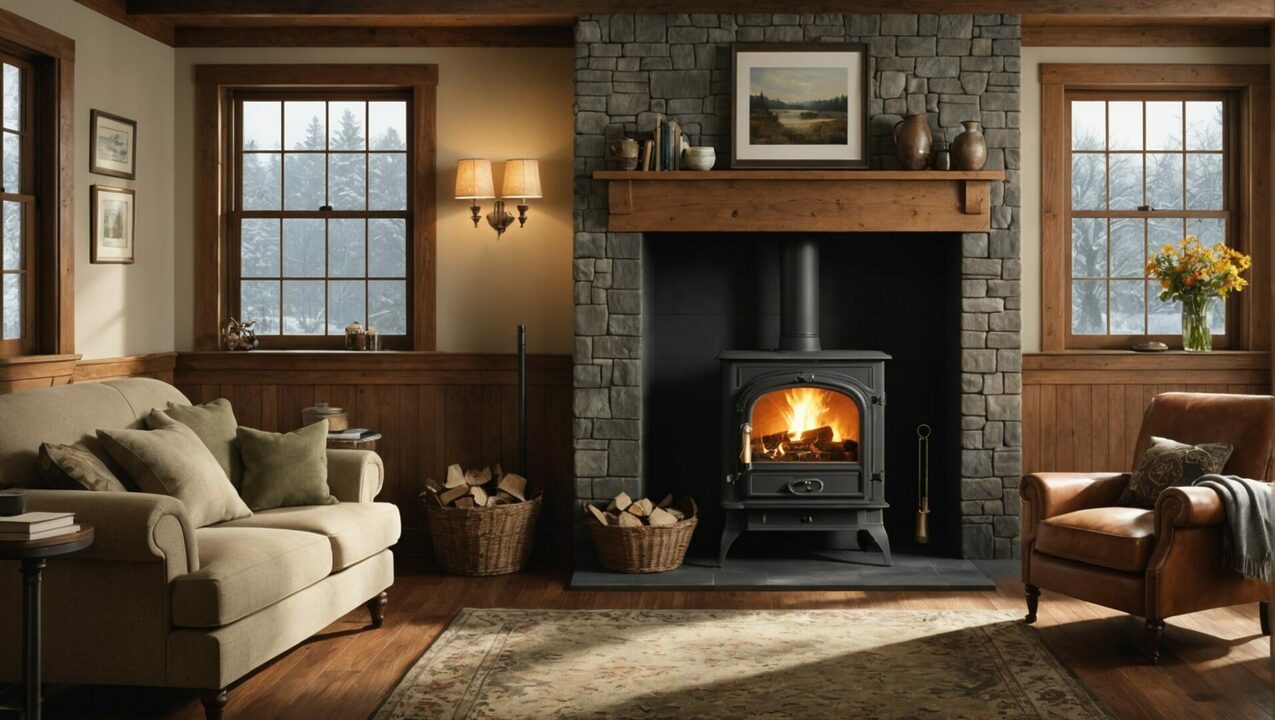Wood heating is often popular for its attractive price and reduced ecological footprint. However, significant regulatory changes are coming, which could have financial implications for users. Implementing these new standards could result in additional costs for those using wood heating systems. Let’s explore together what awaits you.
The new regulations: what implications?
From October 2023, France has decided to strengthen its supervision regarding wood heating. This change mainly aims to reduce the polluting emissions, which are of increasing importance in the fight against air pollution. With 43% of air pollution caused by fine particles, it is essential to reduce their impact on the environment and public health.
The new regulations will include, among other measures, a obligatory annual maintenance and a regular chimney sweeping. Without respecting these new measures, users are exposed to fines of up to 450 euros and, in the worst cases, a invalidation of their home insurance in the event of a disaster linked to their heating.
Compliance Checklist 2025

Check your compliance before 2025
To ensure your equipment meets upcoming requirements, here is a list of checks to complete:
- Annual maintenance by a certified professional.
- Chimney sweeping carried out at least once this year.
- Space heater compliant (Flamme Verte label or equivalent).
- Use of certified fuels (dry wood with humidity less than 20%).
- Heating temperature set for efficient consumption.
- Compliance of smoke ducts verified.
- Carbon monoxide detector installed and functional.
- Occupant information on good usage practices.
Modernization of equipment: the option to consider
In order to optimize their heating system, many households must consider modernize their equipment. Getting rid of old or inefficient appliances, such as open fireplaces, and investing in modern models, certified Flamme Verte, can prove decisive. These devices, offering better efficiency, not only reduce broadcasts but also long-term heating costs.
Likewise, the use of dry wood or certified pellets can significantly improve the energy efficiency of your heating, while complying with future regulatory standards. Advice from specialized craftsmen will also allow users to adopt effective practices to optimize their consumption.
Anticipate and manage expenses: some recommendations

With these regulatory developments, anticipating expenses becomes essential. Here are some suggestions to better manage these upcoming constraints:
- Plan your interviews and chimney sweeps before winter. This is often a busy time for professionals.
- Buy your wood or pellets from September to benefit from more advantageous prices and avoid stock shortages.
- Set up your devices at suitable temperatures to save on your energy bill.
A new financial balance
Despite its attractive cost of use, wood heating is gradually becoming a heavier expense for households. In particular, plan for costs related to maintenance, which can vary from 100 to 200 euros per year, as well as any costs linked to the modernization of your equipment, which can go up to 5,000 euros. Fortunately, aid such as MaPrimeRénov can help to alleviate these investments.
These expenses, although significant, come with greater energy efficiency and long-term savings. Adopting optimized cost management will also help reduce costs while complying with new regulations.
Summary of necessary actions and their objectives
| 🌿 Action | 💡 Objective | 💸 Estimated cost |
|---|---|---|
| 🛠️ Annual maintenance | Safety and energy performance | 100 to 200 € |
| 🧹 Regular chimney sweeping | Fire risk reduction | 60 to 150 € per intervention |
| 🔄 Replacement of devices | Reduced emissions and improved efficiency | Up to €5,000, aid available |
| 🪵 Advance purchase of wood or pellets | Cost reduction and availability | 10 to 30% savings |
| 🔧 Adjustment to suitable temperature | Reduction in fuel consumption | Savings on the annual bill |



